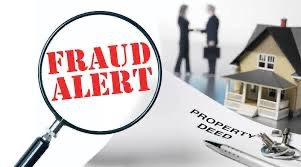Trapped by Equity: How Outdated Tax Rules Could Hurt Longtime Homeowners
- Front Key Realty

- Jul 2, 2025
- 2 min read

Millions of American homeowners are unknowingly sitting on a hidden tax trap. Thanks to a 1997 capital gains tax rule that hasn’t been updated for inflation, homeowners who’ve lived in their homes for decades—and built up significant equity—now face huge tax bills when they sell.
The federal tax exclusion lets individuals avoid capital gains taxes on up to $250,000 in profit from the sale of their primary home ($500,000 for married couples). But with home values having increased more than 260% since 1997, these limits are no longer enough to protect many everyday homeowners. If the limits had kept up with inflation, they’d be closer to $660K for singles and $1.32M for couples.
What This Means for Homeowners:
1 in 3 U.S. homeowners already exceed the current tax exemption. That number could rise to 56% by 2030.
Many older homeowners now avoid selling to escape a potential 5- or 6-figure tax hit, even if their home no longer suits their needs.
Instead of downsizing or moving closer to family or care, they stay put—sometimes in homes that are too big or hard to maintain.
This traps their equity and keeps much-needed homes off the market, worsening the housing inventory crisis and driving up prices.
The Ripple Effect:
Families who hoped to use their home equity for retirement, medical expenses, or to help their kids may be forced to wait until death to pass on their homes tax-free.
Many are unaware of the looming tax until they talk to an accountant—and are shocked to find they owe tens or hundreds of thousands of dollars.
High property taxes in some states only add to the burden, especially for those on fixed incomes.
The Fix?
Housing advocates and the National Association of Realtors® are urging Congress to act. A bipartisan proposal—the More Homes on the Market Act—would double the capital gains exemption and adjust it for inflation going forward.
Without reform, more middle-class families will continue to face a lose-lose choice:Sell and lose a big chunk of your equity, or stay stuck in place and let the market suffer.






Comments